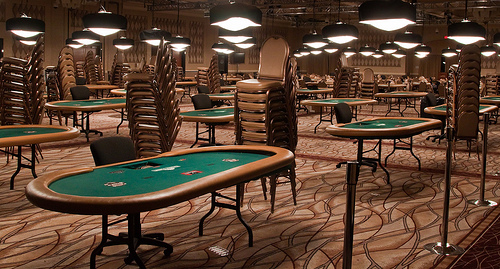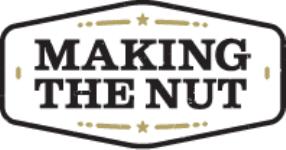Legalised Online Poker in Australia: On the Bubble
When I first heard that an official review of the Internet Gambling Act (IGA) had recommended that poker be legalized and regulated in Australia I thought: about bloody time. About bloody time some common sense prevailed on this issue. For too long (since 2001, when the Howard government introduced the Act), Australian online poker players have had a cloud hanging over activities – whether they be enthusiastic amateurs or hard-bitten professionals. It’s not illegal to play poker online, but under the IGA it’s been illegal for sites to provide that service in Australia.
This has always been a stupid law, insofar as prohibition is almost always stupid and counter-productive. It’s almost impossible to enforce – as with practically any law aiming to control the internet. It lumps poker in with mindless set-fire-to-your-wallet gambling such as roulette and online slots. And it discourages the legitimate providers and encourages the crooks and scumbags to start offering online gambling services.
So it was refreshing to learn that the Australian Department of Broadband had looked at online gambling as a whole, and had drawn some sensible conclusions.
Which were as follows: first, that poker should be legalized and regulated. Great. Big tick. Second, that poker was a game at least partially of skill and should not be compared to slot machines or regular casino table games. Tick. Third, online poker players were far less susceptible to problem gambling than people who played table games and poker machines. Tick. And last, in poker, you play the other players, you don’t play the house. Tick tick tick. Thank god someone in the bureaucracy finally figured this out.
However, before we get too excited, there exist two major problems with the review.
First, there has been opposition to these recommendations. Nick Xenophon – well, Nick is consistent if nothing else. If you want to have a punt on something, Senator Xenophon will be there to wag his finger and tut-tut. But his objection was not surprising. What was surprising was Tony Abbott standing next to Xenophon at the press conference. Very strange really, given Tony Abbott has been as supine as a pussy cat on that other major gambling issue: poker machines. For the pokies, Abbott has essentially argued for no changes to the way things are now. Astonishing, really, given an estimated 80 per cent of problem gambling in Australia is caused by the pokies (wagering – particularly on the horses, is a distant second at 9 per cent).
On the other hand, Tony Abbot has described online gambling “dark cave”, and further said of the report, “The problem with this recommendation from the government is that if it goes ahead, every computer is a casino, every smart phone is a poker game, and that's just not on as far as the Coalition is concerned."
Three things about this statement: one, this report isn’t a government report; it’s a report by bureaucrats making recommendations to government. Two, the report only recommends an online poker trial, so it’s hard to argue that ‘every phone is a casino’. And three, bugger off.
Let me expand on the third point. The international experience of Governments wrestling with this issue strongly points to the fact that the jurisdictions that implement a strict regulatory regime for the provision of online gambling services, have been more effective in protecting consumers than those that have prohibited online gambling. Put another way, prohibition doesn’t work: in the US, we’re they’ve banned online gambling, they still have the biggest online gambling market in the world. Or put another way: fuck off and let me play poker.
Furthermore, online poker players have next to zero influence, while the potency of the poker machine industry as political lobbyist is well-known. And the Clubs have even started lobbying against online poker – in a submission to the interim report on the IGA, the clubs argued against online gambling for the following reason:
“There remains a concern that moves to legalise the remaining online segment would provide online gambling with a sense of legitimacy, resulting in increased participation in online gambling activities and problem gambling prevalence levels.”
Yes, you read that right. The vomit-inducing hypocrisy of Clubs Australia knows no bounds. Poker machines cause the vast majority of problem gambling in Australia, yet they are worried about giving ‘legitimacy’ to a skill game like poker. A cynic would say they’re worried about online competition.
Anyway, while the line-up of cumquats and media gigolos opposing this is of some concern, there is a second, even more pressing problem: if the trial were to go ahead it would be useless.
Here’s why: the interim report by the Department argues that tournament poker is less prone to problem gambling than cash games. So, it recommends that only online tournaments be legalized. Worse still, it further recommends that only one tournament at a time be allowed – so no multi-tabling. The report notes that of the 300 million spent on online poker each year in Australia, only about 30 million is spent on tournaments, with the remainder on cash games.
The main problem I see with the trial is this: it isn’t a trial. It tests nothing. One poker tournament at a time and no cash games? I can give you the results now, before it begins. The percentage of problem gamblers that will be recorded under this trial will be zero. It is close to impossible to problem gamble on poker tournaments, playing one at a time. As the report rightly points out, in many states in Australia, this sort of trial would not even be considered gambling. Given that it is a skill-based competition with more of an ‘entry fee’ rather than a wager.
The proposed trial is therefore pointless. Not only will it reveal nothing about the problems of online casino gambling, it tells you almost nothing about online poker.
If the Government wants to trial online poker, then it needs to trial it in its entirety: cash games and tournaments, and with multiple tables if the player decides. While I firmly believe the percentage of poker players who are problem gamblers is miniscule, the documentary evidence to back this assertion is limited. There are no comprehensive studies that I am aware of that look specifically at problem gambling amongst poker players (and we are not talking here of poker players who do well at poker but lose it all at Blackjack or Roulette – that is another story).
This lack of evidence is why a trial is so important – a genuine trial. Once there is incontrovertible evidence to show that poker produces very few problem gamblers, policy makers will have to start making some sensible laws. Then we can have reputable sites, with adequate harm reduction measures, able to offer online poker in Australia. Players will then be able to access that service with no lingering threat of the site suddenly being shut down or of player funds being confiscated.
However, even a limited trial is unlikely. As noted, poker players aren’t the most effective lobbyists in the world, and with talk of casinos ‘in every smart phone’ and ‘dark caves’ good policy may never see the light of day.


Nick Xenophon needs to stop admiring the smell of his own farts and go and play on the road.
"This has always been a stupid law, insofar as prohibition is almost always stupid and counter-productive. It’s almost impossible to enforce – as with practically any law aiming to control the internet."
I totally agree with you, Tim! Regulation and prohibition are almost always stupid and counter-productive. It's nice that you can identify the problems that arise when the government proscribes an activity in order to entertain majority opinion and win votes at the expense of the minority. It is a bit of a shame that you can't look past your own nose, though, and can't extend your dislike of prohibition and regulation beyond those things which do not directly affect yourself (regulation of the media is an example which immediately springs to mind).
I know you love Gina Rinehart's poetry so much I thought I might adapt an old poem written by Martin Neimoller in 1946 for you too:
"First they came for the communists, and I didn't speak out because I wasn't a communist.
Then they came for the Jews, and I didn't speak out because I wasn't a Jew.
Then they came for online poker and the internet, and there was no one left to speak out for me."
Glad you agree.
However, you seem to be confusing prohibition and regulation. There's a pretty big difference.
I'm not confusing anything Tim, prohibition is simply the most extreme form of regulation.
What are you talking about? So licensing alcohol and breath testing drivers is an extreme form of prohibition? Stupid comment Avoozl. Just dumb.
I for one would be happy to see online poker be legalised and treated like any other business.
Bob C
Bob C, I said that prohibition is the most extreme form of regulation. Not the converse.
Licencing alcohol is regulation. Banning it is prohibition. Licencing is obviously a milder form of regulation than going to the extreme of prohibiting it completely however both are forms of government coercion in sense that they use force (the threat of imprisonment) to restrict our behaviour.
Breath testing drivers is neither regulation or prohibition – it is the police enforcing the criminal law.
Online poker can be legal without being regulated. As can any other business activity.